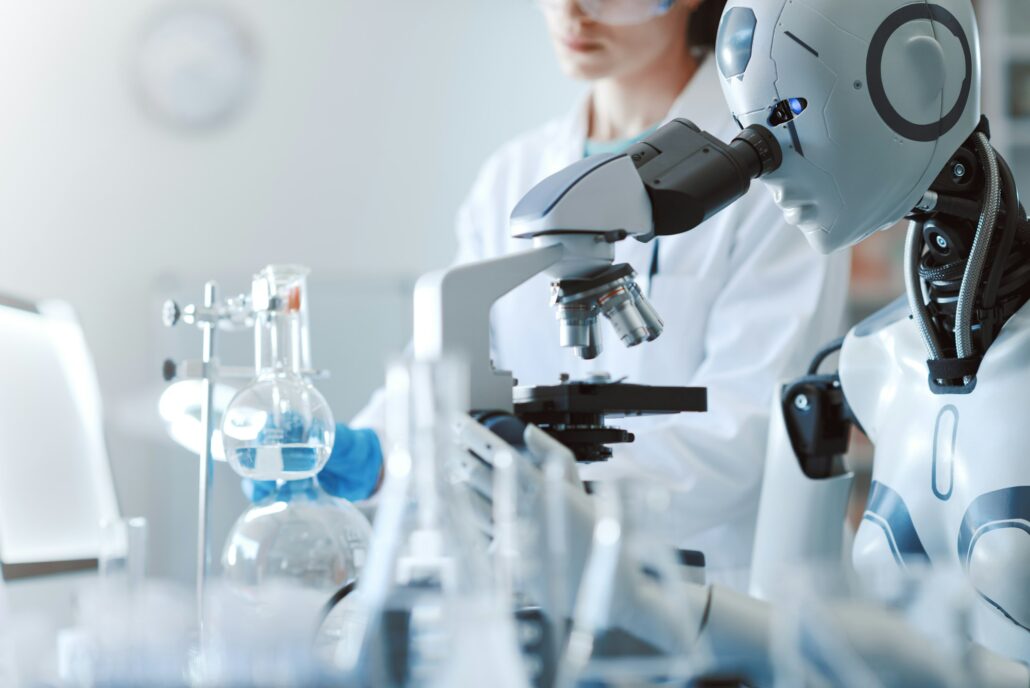Have you ever found yourself wondering if those futuristic sci-fi movies might become a reality, where intelligent robots take over the world – or in our case, the hospital? It’s a question that’s been on the minds of many in the healthcare industry. As technology continues to rapidly evolve, it’s natural to feel a mix of excitement and nervousness about what the future holds. Today, we’re exploring whether AI will replace doctors or if it’s here to help the industry.
By the end of this post, you’ll have a clearer understanding of AI’s role in healthcare and how it might impact your daily practice.

What is AI in Healthcare?
Artificial Intelligence (AI) refers to machines that can mimic human intelligence. In healthcare, AI applications range from diagnosing diseases to recommending treatments and even handling administrative tasks.
For example, AI-powered tools can analyze medical images to detect anomalies faster than a human eye might. AI algorithms can also sift through vast amounts of patient data to recommend personalized treatment plans. And let’s not forget the AI chatbots that handle patient questions and appointment scheduling.
AI is already woven into many aspects of healthcare, often working behind the scenes to improve efficiency and accuracy. It’s not a futuristic concept; it’s happening right now.
The Fear of Replacement
It’s only natural to worry that AI might replace jobs, including those in healthcare. Headlines often sensationalize predictions that robots and AI systems will take over various professions, including medicine. This fear is amplified when high-profile tech leaders make bold claims about the potential of AI.
However, AI has its limits. Despite its capabilities, it misses the human touch that’s crucial in healthcare. Ethical issues and complex decision-making are areas where AI falls short. While it can help with data analysis, it can’t replace the empathy and nuanced understanding that human doctors provide in patient care.
AI as a Helping Hand
Rather than seeing AI as a threat, imagine it as a helpful assistant. AI can enhance efficiency in various ways. For starters, it can speed up diagnostics by quickly analyzing medical images or lab results. This allows doctors to focus more on patient care rather than getting bogged down in routine tasks or waiting longer for test results.
AI can also create personalized treatment plans based on individual patient data, leading to better outcomes. Imagine having a virtual assistant that takes care of administrative burdens like scheduling and paperwork. This could significantly reduce burnout among healthcare professionals.
In short, AI can serve as a priceless tool to make your job easier, not extinct.
The Future of AI in Healthcare
What does the future hold for AI in healthcare? The potential progress is both exciting and promising. We’re likely to see more sophisticated AI tools that can handle increasingly complex tasks. But the real key to success will be teamwork between humans and AI.
Doctors and AI working together can lead to more accurate diagnoses and more effective treatments. Future advancements may even include AI systems that can predict health issues before they become severe, allowing for early interventions.
The evolution of AI in healthcare will continue, but human expertise will always be crucial in interpreting AI-generated data and making final decisions.
Conclusion
AI is not here to replace doctors; it’s here to aid them. By staying informed and embracing AI advancements, healthcare professionals can enhance their practice and improve patient outcomes.
For those interested in further exploring AI’s role in healthcare, consider joining discussions, attending webinars, and staying updated with the latest research.





